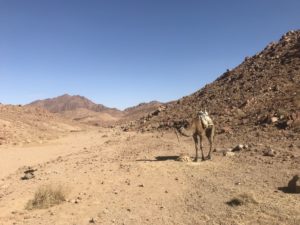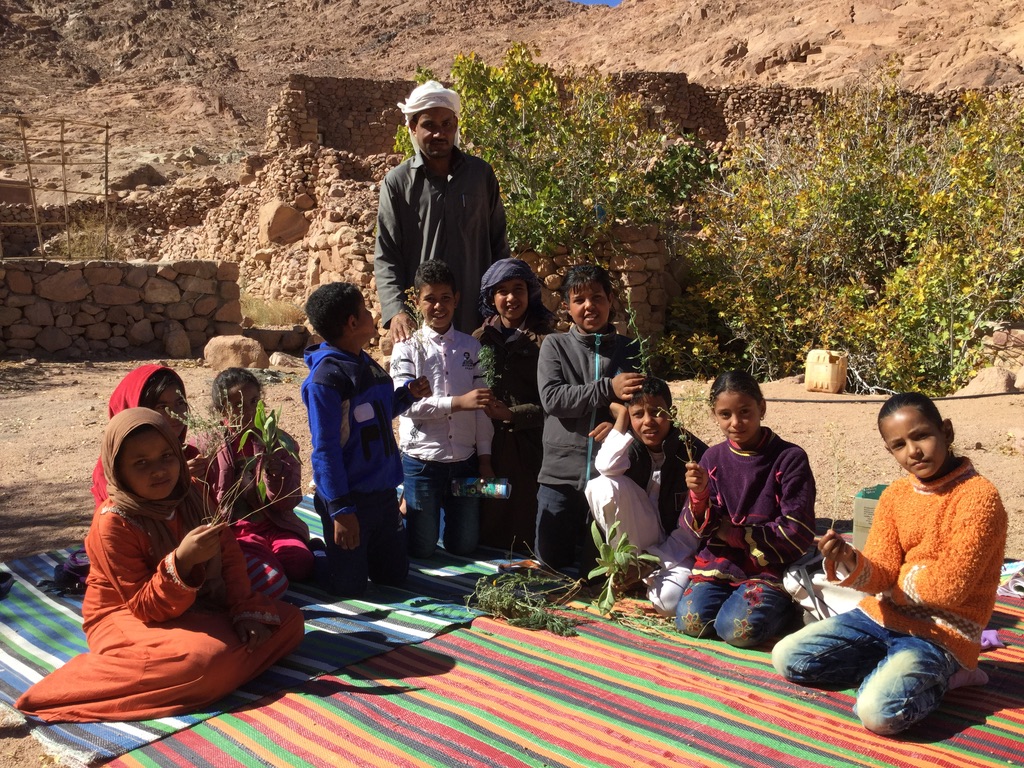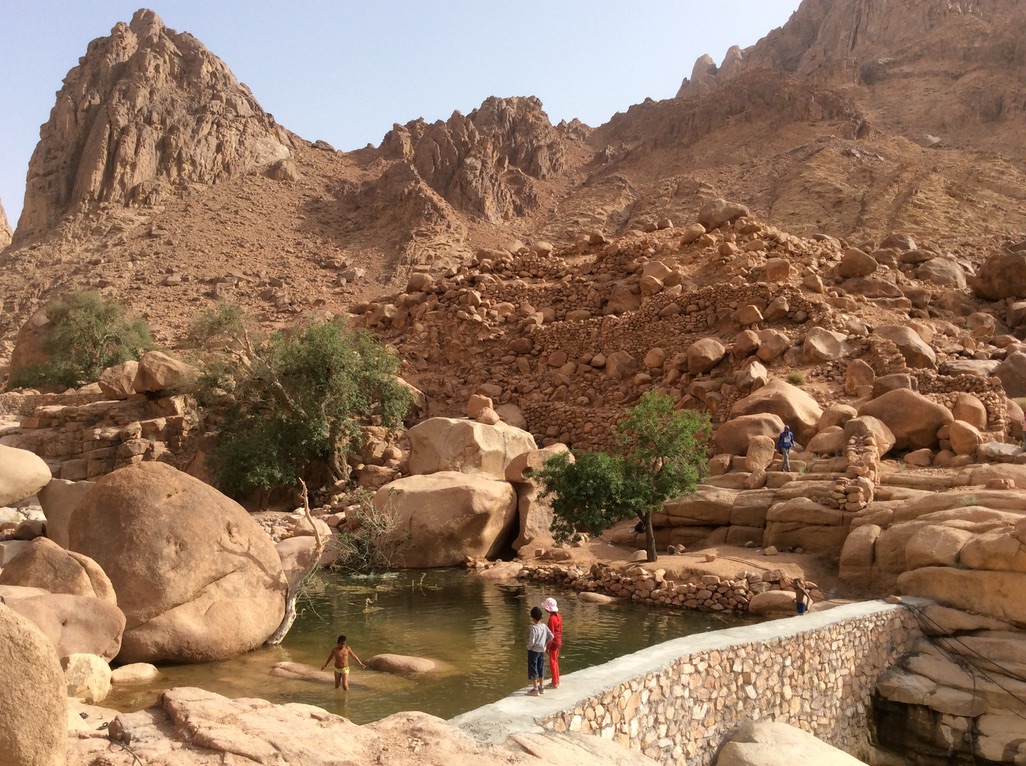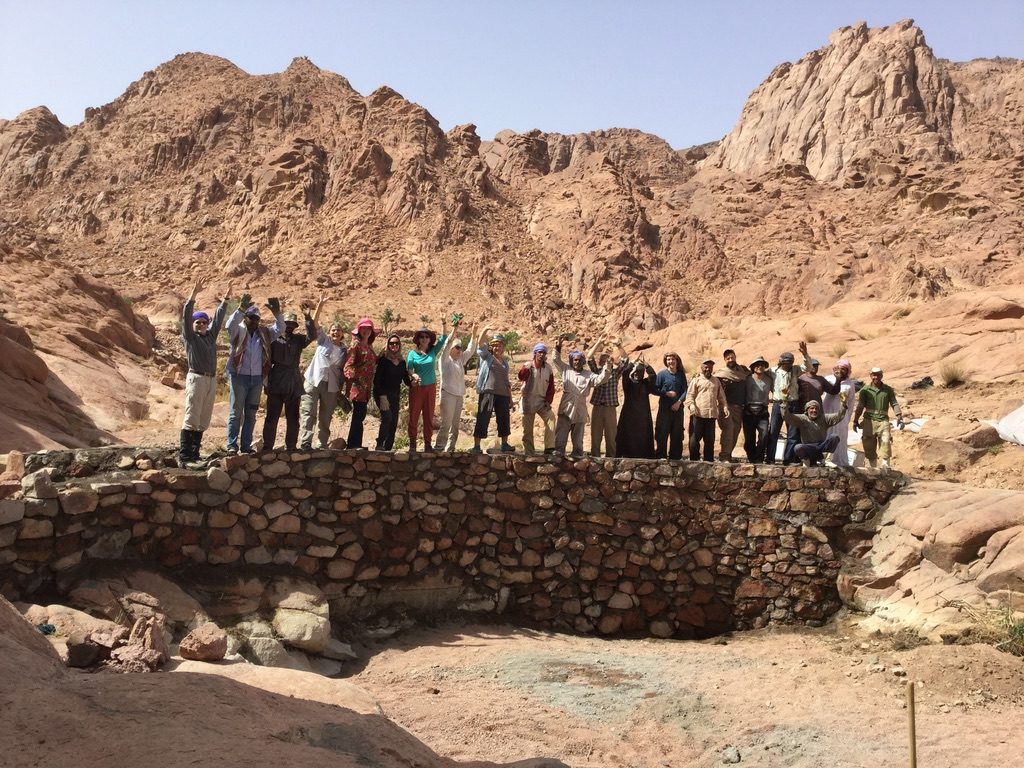November 19 News
We have now restored 476 wells!
We are hoping to make it 500 by the middle of next summer and then 50 wells a year over the next 4 years or so, by which time, we should have restored all the wells that are in need.
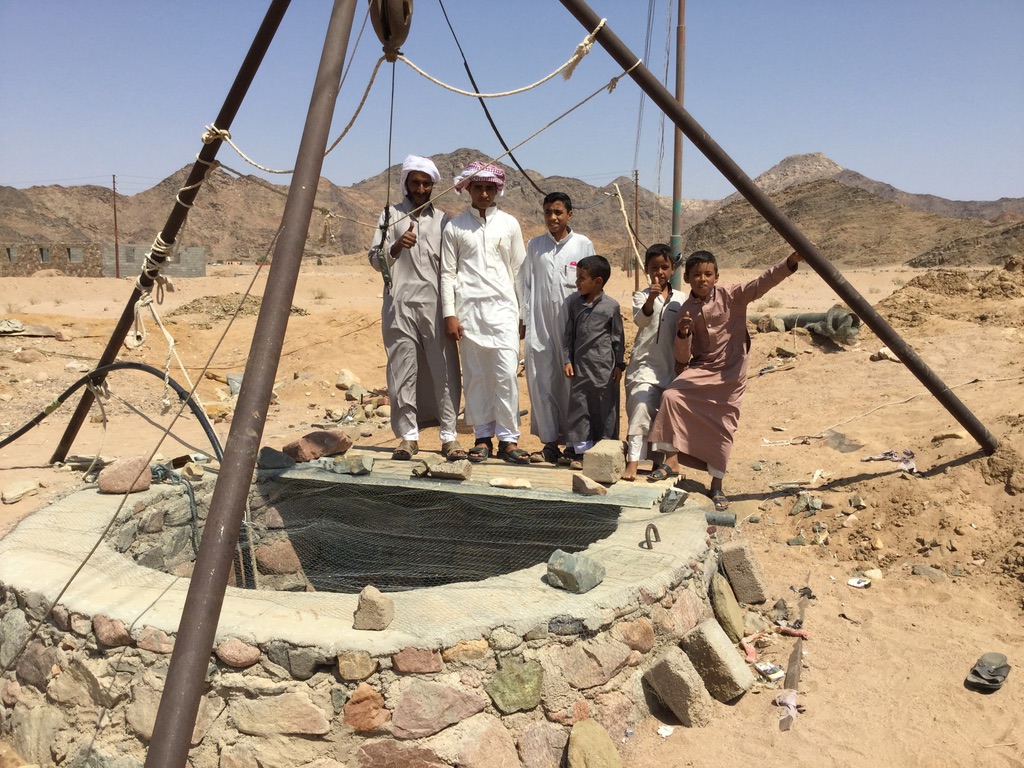
Our only problem is our success, and that well owners from more remote areas will be asking for support too. But that is not an insurmountable problem. Improved access to water through desert well restoration has increased the numbers of Bedouin families who come with their goats and camels for grazing, just like they used to do in the old days. Many of them live in towns along the coast, but once the children have finished school they pack up their tents and animals and move to the high desert plains, around 30 miles out from St Katherine’s.
Even without these extra people, we estimate that we have helped a minimum of 20,000 people have access to water, but we think it is probably a lot more than this.
However, behind all these successes lie stories of real human suffering. In one small community, an elderly lady used to take a donkey 7 km to the nearest water, fill up her containers and walk back, and do this three times a week, just to provide the absolute minimum water required for drinking and cooking. Restoration of 5 wells in this community has rejuvenated it, with people coming back from the towns to be in their ancestral lands again. In another community they have two small wells, one of which we restored and the other gives some water but there is nowhere near enough for 30 families. It is over 10 km to the nearest well by pickup, but even there, there are so many people the pressure for water is high. They need a new well but our policy is not to sponsor unproven wells. They need help but we don’t know how best to do this. In another community they have lots of wells but with no rain for over 4 years, the wells are all going dry.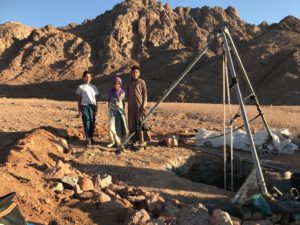
What the Bedouin need most is rain – moderate and often, not excessive and rare. With good rains the wells would be full and the water table higher, and many wells on our list could be taken off it.
Orphan Herb Growing Project
In October our new students started to learn all about herbs and how to grow them, with their teacher Selim. When we met them, they had learnt about 30 local herbs from the mountains and valleys nearby; which were useful, medically and for cooking, and which were poisonous (very important to know if you are collecting them). All the students took a turn in naming and categorising the herbs and they seemed to be enjoying their lessons. All the children have lost their father, two men were killed in motorcycle accidents, and the others were health related premature deaths. There are 12 children from 6 families, and they will spend the next 18 months learning all there is to finding, cultivating, cutting, drying and using the herbs, with a view to planting up their own herb gardens and selling herbs to bring in an income to their families in the future.




